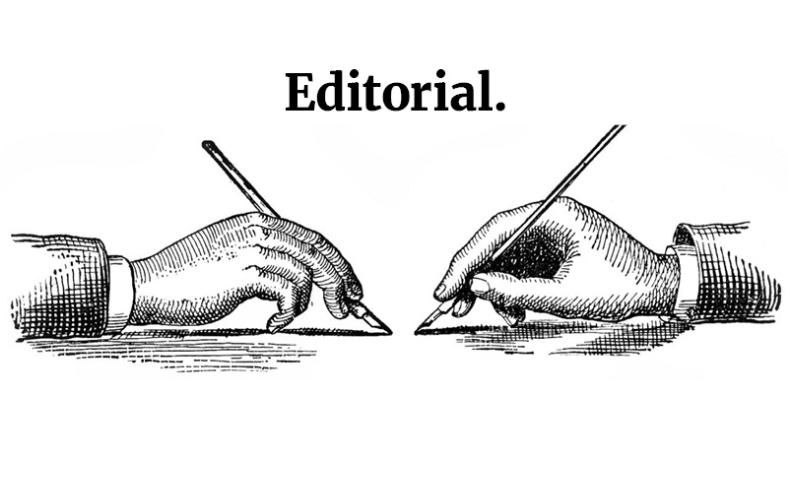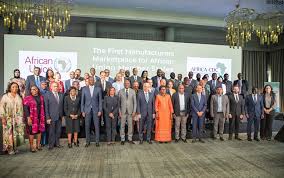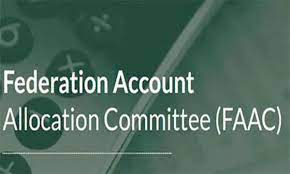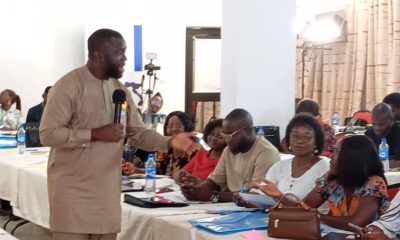EDITORIAL
Signing of the AfCFTA

History was made on July 7, 2019, when President Muhammad Buhari finally signed the African Continental Free Trade Area (AfCFTA) Agreement at the Mid-Year Coordination Meeting of the African Union and 12th Extraordinary Summit of the African Union, holding in Niamey, Niger Republic.
Nigeria has thus become the 53rd African country to sign the agreement, which has already been ratified by 24 countries.Over the years, African leaders have toyed with the idea of an integrated market on the continent that allows free trade among countries in the continent to strengthen the economies of their respective countries, which have been struggling.
The countries, through the African Union, in 2012, came up with the African Continental Free Trade Area (AfCFTA), which aim is to deepen regional integration. The ACFTA covers goods and services and has plans for infrastructure, industrialisation, agriculture modernisation and small scale trade, as well as innovation, intellectual property, competition and investment, and is expected to be the world’s largest free trade area since the formation of the World Trade Organisation, with a potential market of 1.2 billion people and a Gross Domestic Product (GDP) of $2 5 trillion, across all 55 member states of the African Union.Even though Nigeria was one of the countries that championed the AfCFTA, local labour unions kicked against it as they perceived it to be detrimental to our country’s economy.
Following the protests against it, at a time most African countries had keyed into the arrangement, Nigeria was yet to, as there was a high level of scepticism about it. At the 30th Ordinary Session of the Assembly of the Heads of State and Government of the African Union in Addis Ababa, Ethiopia, in January 2018, President Muhammadu Buhari had announced Nigeria’s decision to put off the signing of the AfCFTA to allow more time for stakeholders in the country to review and make contributions. The president’s announcement was on the heels of protests by local business groups that the AfCFTA would hurt the economy, which was battling a recession.
It was therefore heart warming when the president recently disclosed that he would be signing the phase one of the AfCFTA. The president’s decision followed the report of the Presidential Committee on the Impact and Readiness Assessment of the AfCFTA. The committee was set up to review the issues that had been raised about the agreement, primary among which was that it had the potential to make Nigeria a dumping ground on the continent.
Presenting the report, committee chairman, Dr. Desmond Guobadia, had remarked that “Our reports show that on the balance, Nigeria should consider joining the AfCFTA, and using the opportunity of the ongoing AfCFTA Phase one negotiations to secure the necessary safeguards required to ensure that our domestic policies and programmes are not compromised.”
While we note that the country needs to consider the AfCFTA carefully, we consider it crucial to economic development and fully endorse it, especially in view of the projection by the the United Nations Economic Commission for Africa that it could increase trade between African countries by about $35 billion, representing more than 50 per cent growth from the current figures. Nigeria cannot afford to exempt from a treaty that holds huge potentials for it, in view if its size, population and position on the continent.
To ensure that businesses in Nigeria benefit from the AfCFTA, we call on the Nigerian government to eliminate barriers such as multiple taxation, epileptic power supply and other issues that make the business environment hostile to operators, to make the businesses truly competitive within the continent and also ensure strict compliance with all trade regulations in the country to guard against dumping.
EDITORIAL
Urgent Need to Tackle Insecurity and Looming Hunger Crisis

Critical stakeholders in the agriculture sector have persistently warned that the relentless wave of attacks against farmers in Nigeria by cattle pastoralists, bandits and kidnappers could further contribute to the nation’s economic woes. Already, there is unprecedented shortfall in food supplies.
This unfortunate trend threatens to push Nigeria deeper into a devastating hunger crisis. Increasing attacks on farmers across parts of the country have led to displacement of farmers, market disruptions and loss of livelihoods. In particular, food basket states like Benue, Niger, Kaduna, Borno, Plateau, Kogi and farming communities are being relegated and dehumanised to camps as Internally Displaced Persons (IDPs), thereby worsening the food crisis in the country.Bandits, kidnappers and other dare-devil armed groups have been killing farmers in their hundreds while others are kidnapped and made to buy their lives with millions of naira, thus forcing many farmers to abandon their farms.To worsen the situation, there are devastating floods in many parts of the country which have claimed dozens of lives and have washed away thousands of hectares of cultivated farmlands. This has exacerbated the plight of farmers. The climate change crisis is more likely to push many more people into hunger because of the flooding and unpredictable rainfall pattern, far more severe than in previous years will further compound the food crisis.Last year, the UN estimated that more than 25 million people in Nigeria could face food insecurity this year, a 47 percent increase from the 17 million people who were already at risk of going hungry – mainly due to the ongoing insecurity, protracted conflicts, and the projected rise in food prices.In addition, an estimated 2million children under the age of five in the northeastern states of Borno, Adamawa, and Yobe are likely to be pushed into acute malnutrition while about 700,000 will face life threatening starvation.Also, in the 2023 Global Hunger Index, Nigeria ranked 109th out of the 125 countries with food shortage with a score of 28.3 in the 2023 Global Hunger Index. Thus, Nigeria has a level of hunger that is serious.Already, the food crisis, insecurity and corruption have reached an alarming rate which triggered a 10-day protest across the country last month.DAILY ASSET is of the view that for the Tinubu administration to get Nigeria out of the woods, it must redouble efforts to tame the rising spate of insecurity in the country.That the nation’s armed forces must urgently embrace technology and involve new strategies to restore security for the displaced farming communities to resume full farming activities.Additionally, the federal and state governments should explore the possibility of tackling unemployment, poverty and inequality.Also, the porous borders have to be strengthened to prevent the influx of undesirable elements through increased surveillance by security agencies.The complex challenges facing Nigeria can only be tamed through the implementation of workable strategies, commitment and cooperation among all stakeholders.EDITORIAL
Oloyede: Accolades to Unconventional Public Servant

Akin to an eagle-eyed combat pilot on a reconnaissance mission – making his flight preparations, loading the right ammunition and aiming at his target without missing, so was Prof. Is’haq Olarewaju Oloyede, when he arrived the headquarters of the Joint Admissions and Matriculation Board (JAMB), upon his appointment in 2016.
In the first few months of his assumption of office, activities pervaded to the lowest ebb at the JAMB headquarters.
Like a fighter pilot on a rescue mission, Oloyede embarked on a discreet but holistic audit of the board. He was simply planning how to navigate his flight in order to hit his target, without missing.While in the closet planning, there was a shift in the timetable date of the Unified Tertiary Matriculation Examination (UMTE) for that year and tongues went wagging, mostly from staffers of the board that the newly appointed Professor of Islamic Studies and “controversial” former Vice Chancellor, University of Ilorin, was totally confused and clueless about the demands of the office and the direction to take the examination body.
After the audit, Oloyede gathered enough information and momentum. He then released his mission and vision for the examination body, chief of which was to reposition the board technologically to eliminate all forms of examination malpractices and timely release of results to candidates – three days of sitting for the examination.
Those pronouncements were followed with wide ranging reforms, including unraveling of mind blowing malfeasance of corruption involving several workers of the board. For instance, a staff of the board in Benue State was involved in massive fraud of stealing millions of naira from the sale of examination scratch cards which she claimed was swallowed by “a snake” from the office save.
In Nasarawa State, the staff of the board who was also caught in fraudulent financial malfeasance claimed his car was burnt along Abuja-Lafia road with all the examination scratch cards that were meant for sale to prospective candidates in the state.
In Kogi State, the staff of the board with itchy fingers claimed he had borrowed money to the state civil servants who were being owed several months of salaries. The ugly stories of massive stealing of the board’s funds reverberated in many states including the headquarters where the former helmsman, Prof. Dibu Ojorinde is currently standing trial for allegedly stealing hundreds of millions of naira.
With those monumental financial malfeasances, candidates were hitherto ripped off of their hard earned money as the examination body was shrouded in fraudulent and chaotic scheming. Consequently, floods of complaints poured in from several quarters on pre-registration and post examination irregularities.
But Oloyede’s surgical knife had cleaned the process and restored sanity after one year in office. By the second year, the examination body had saved over N8 billion and remitted same to the Federal Government, a remarkable departure from about N300 million the examination body was hitherto remitting per year to the government.
Thus, in 2018, the Muhammadu Buhari administration had to review downward the cost of registration of the UTME to N4,500 per candidate from the over N7,000 hitherto charged.
Elated by these remarkable achievements, President Bola Tinubu applauded Prof. Oloyede’s innovative ideas and financial prudence at a recent public engagement organised by the Economic and Financial Crimes Commission (EFCC). .
“One person I always respect is Prof Is’haq Oloyede. Over the years, JAMB never made up to $1m for the Federal Government.
“However, when Prof Oloyede assumed office, JAMB made over N50bn for the Federal Government in one year.”
Another landmark achievement is the initiative in providing Persons with Disabilities (PWDs) the opportunity to register for the 2024/2025 UTME at no cost. This will ensure equal educational opportunities for all, irrespective of physical abilities,
Additionally, the board has acquired some basic tools required by PWDs, like braille machines, personal computers with enlarged features, et al, for persons with special needs.
At a time of verbal rhetoric about fighting corruption by most public servants who are short on practical implementation, at a time revenue generating departments and agencies carry out opaque operations with no tangible results, JAMB, under the captainship of Oloyede, unarguably stands as a referral government agency for transparency.
DAILY ASSET, while commending the management and staff of JAMB, for their commitment to hard work, is pleased to extend warm accolades to a nonconformist and unconventional public servant with passion for accountability and service to humanity.
EDITORIAL
End Kidnapping and Banditry Now!

The alarm bells are ringing with irritating intensity. There is no place for safety as non state actors are wreaking havoc here and there through violent kidnappings, banditry, terrorism and other forms of criminality across the country.
The worsening spread of kidnappings and banditry is raging like a wild fire, which the media had termed, “an epidemic.
” Many precious human lives and property are being lost on a daily basis. So far, President Bola Tinubu has yet to get a cure.Although Tinubu inherited the insecurity from the Buhari administration, no new idea has been put on the table to reverse the ugly situation.
All we hear week in week out from the seat of power and the National Assembly is a pedestrian and lame talk of “we are on top of the situation” and routine invitation of the security chiefs to “come and brief us” of what they are doing to bring the situation to an end.
What is worrisome to some security analysts is the escalation of violent activities by non state actors after every circle of the general elections and the failure of the succeeding government to deal decisively with the situation.
Judging from the performance of Tinubu as governor in Lagos State, when he tamed the “area boys,” Nigerians had expected that he would replicate same as President to tackle non state actors who are daily unleashing violence and harm on helpless citizens by way of senseless killings, kidnappings, banditry, terrorism, et al, to usher in a peaceful Nigeria. .
Moreover, Tinubu assumed office at a time the security agencies had acquired (and have continued to take delivery of) military hard wares to combat worsening insecurity without significant success is rather unfortunate. I
It smacks of a joke when the security agencies flaunt those hard wares meant to fight insecurity in towns to harass innocent citizens in what they describe as the “show of force” when in reality non state actors continue to run riot to inflict pernicious injuries on unfortunate citizens in different parts of the country.
DAILY ASSET is of the view that a more coordinated and holistic approach be adopted to end the epidemic by strengthening these processes:
First, deployment of robust technology and increased funding. The president should order the National Communications Commission (NCC), and all telecommunications companies to partner security agencies in providing accurate information where calls originate.
This will enable security operatives to clearly identify the point of originating call for swift response. And where any network provider fails to provide a timely and accurate information to security agencies to track such calls, appropriate sanctions should be immediately applied against it even if it means the revocation of the operating license.
Additionally, drones should be acquired for early warning and monitoring of illegal movement of vehicles and persons, particularly in the forests.
Second, there should be strong and mutual inter agency cooperation on information sharing. The President should direct the Central Bank of Nigeria, all money deposit banks, Bureau de Change operators and National Financial Intelligence Unit (NFIU) to reintroduce the cash light policy.
These agencies should synergize to ensure no huge amount in cash is withdrawn over the counter from any money deposit bank. Similarly, the movement of large funds should be tracked and a red flag raised where such funds are suspected of being moved for the funding of illegal activities.
Third. The autonomy of the Local Government Administration should be restored. The chairmen of local councils – as a tier of government closer to the people – must be empowered to deal with security issues. In particular, Divisional Police Stations in rural areas should be beefed up with adequate personnel and equipment, especially patrol vehicles for rapid responses during emergencies.
We believe that if the above measures are holistically implemented and followed with a clinical reform of the administration of criminal justice for the speedy trial of suspected kidnappers, bandits and terrorists, those violent criminal actions from non state actors will soon be a thing of the past.






























